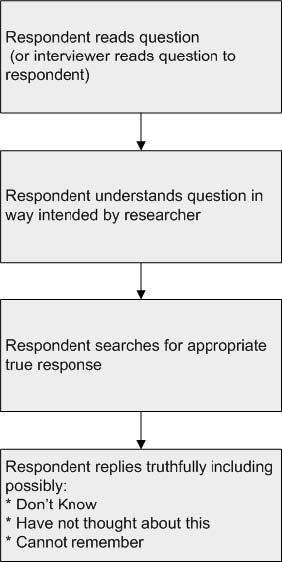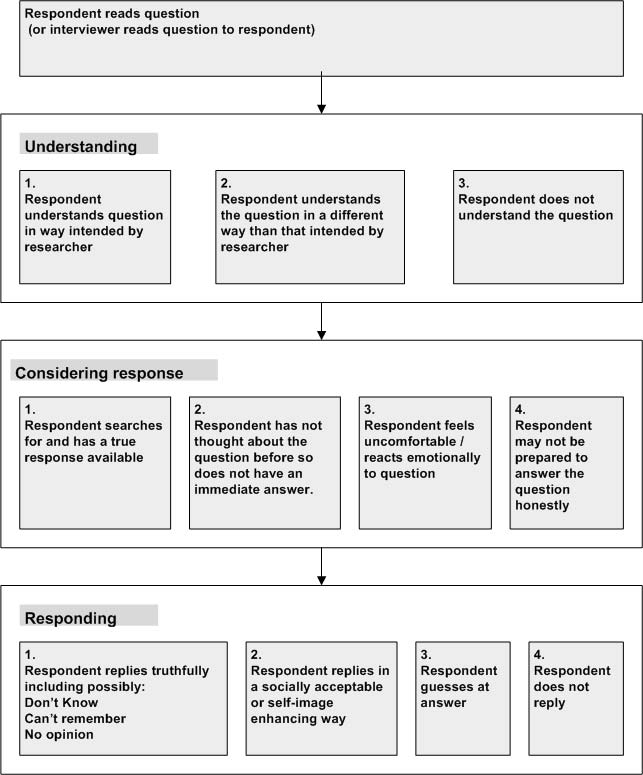What Happens When You Ask a Respondent Survey Questions?
When planning and designing a survey, you may just assume that respondents understand the purpose of the question completely and that they correctly interpret the way in which the question was intended.
It is expected that the respondent completes the question and replies with a truthful and accurate response. If the answer is easily triggered from a respondent’s memory or if the answer can be easily determined, there is a higher percentage that the respondent will truthfully answer the question. If a respondent cannot recall the information or cannot easily produce an answer to the survey question, they will still answer appropriately if the question is self-explanatory, asked in proper context, and has the appropriate range of response choices.
Questions need to be structured and phrased methodically to make the sequence of events logical to the average survey respondent.
Ideally, this is how a respondent should answer a survey question:

Realistically, this is how a respondent answers a survey question:

Once you understand how a respondent answers survey questions, you can plan and design your survey for the most accurate survey outcome possible. By asking clear, concise, and contextually-based survey questions, the respondent will interpret questions correctly and respond truthfully.



